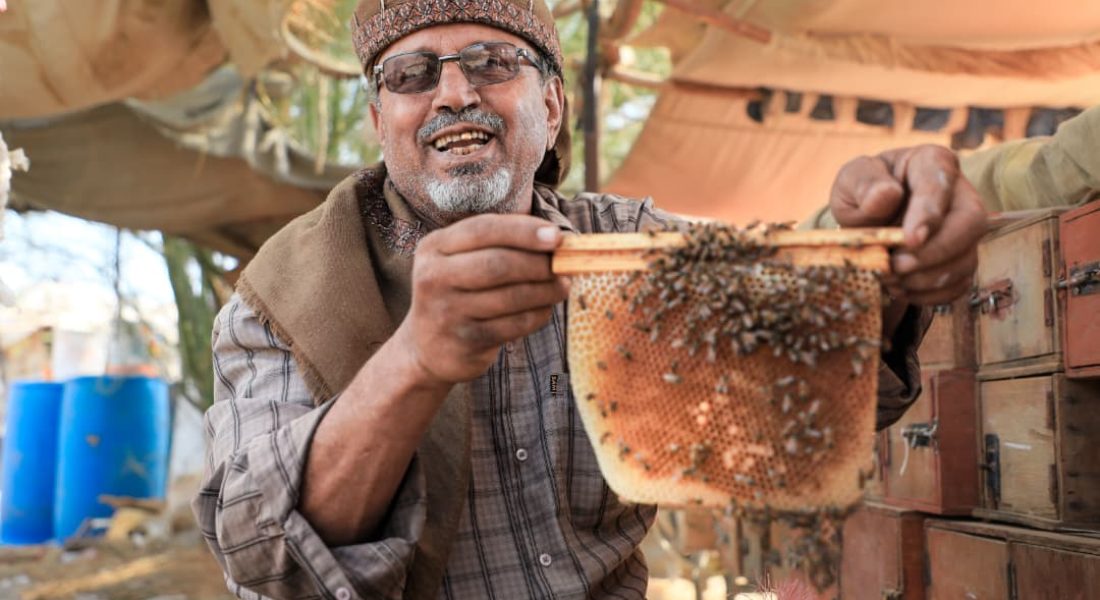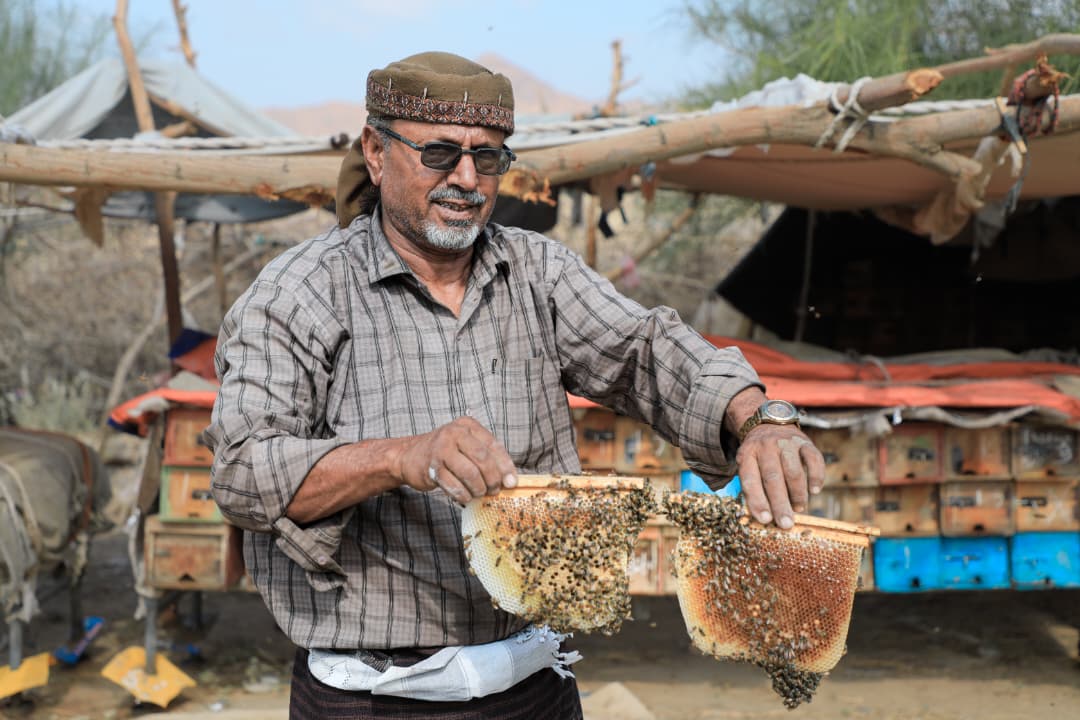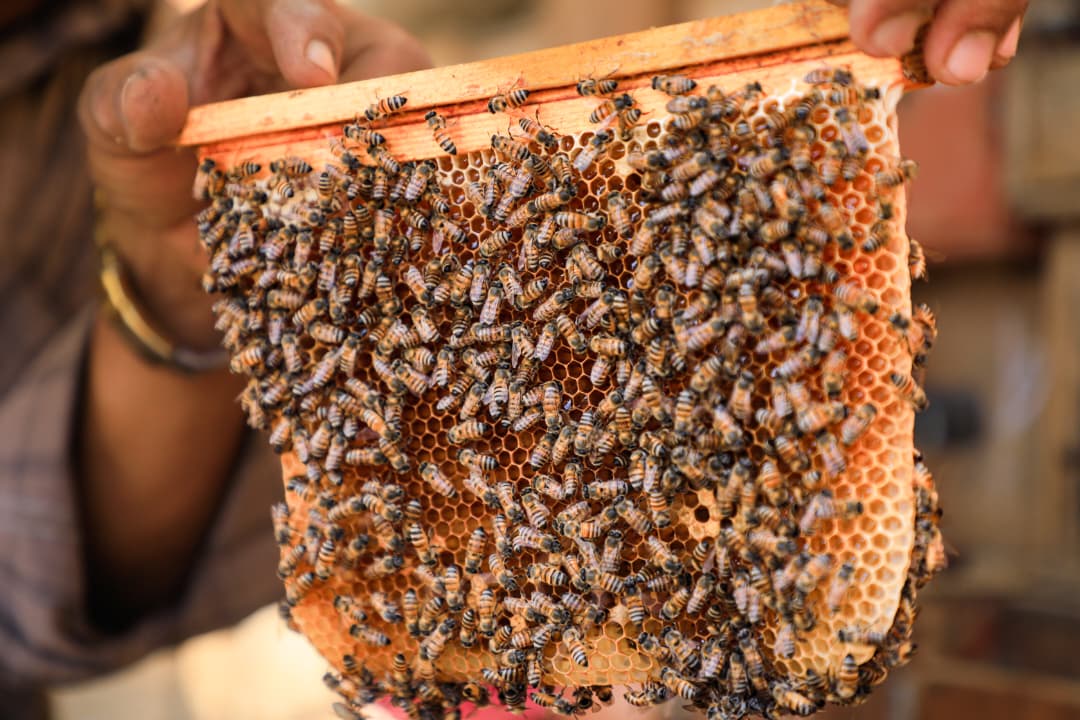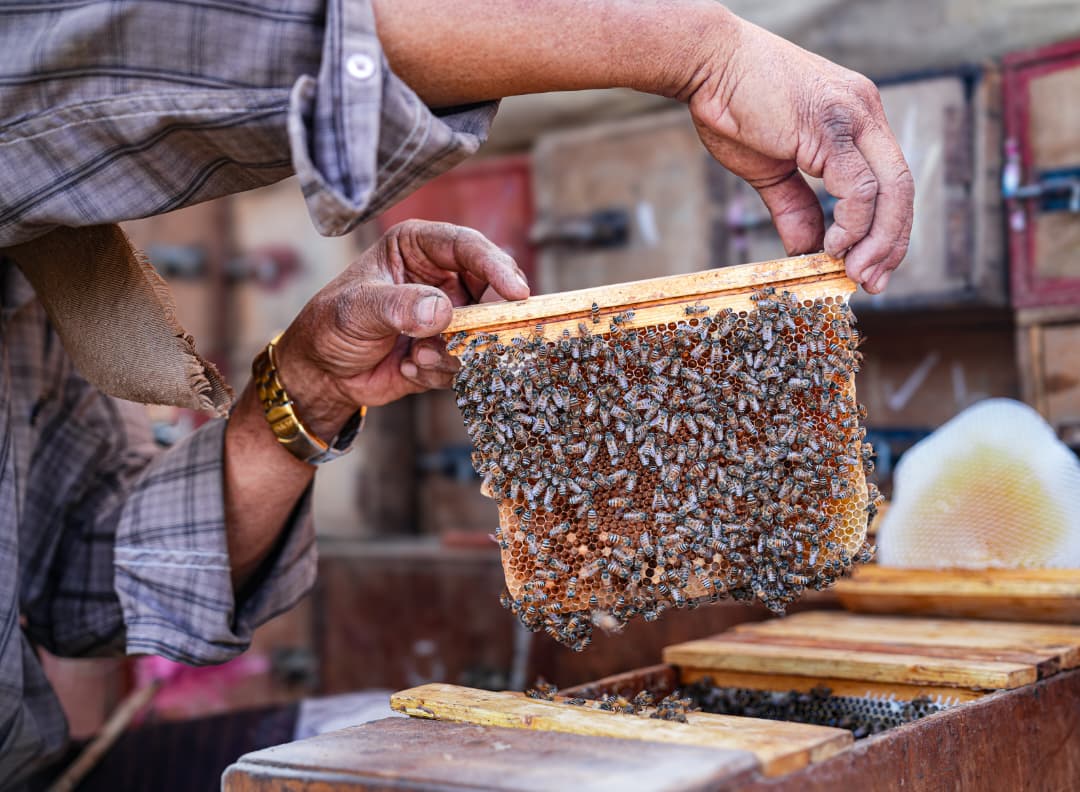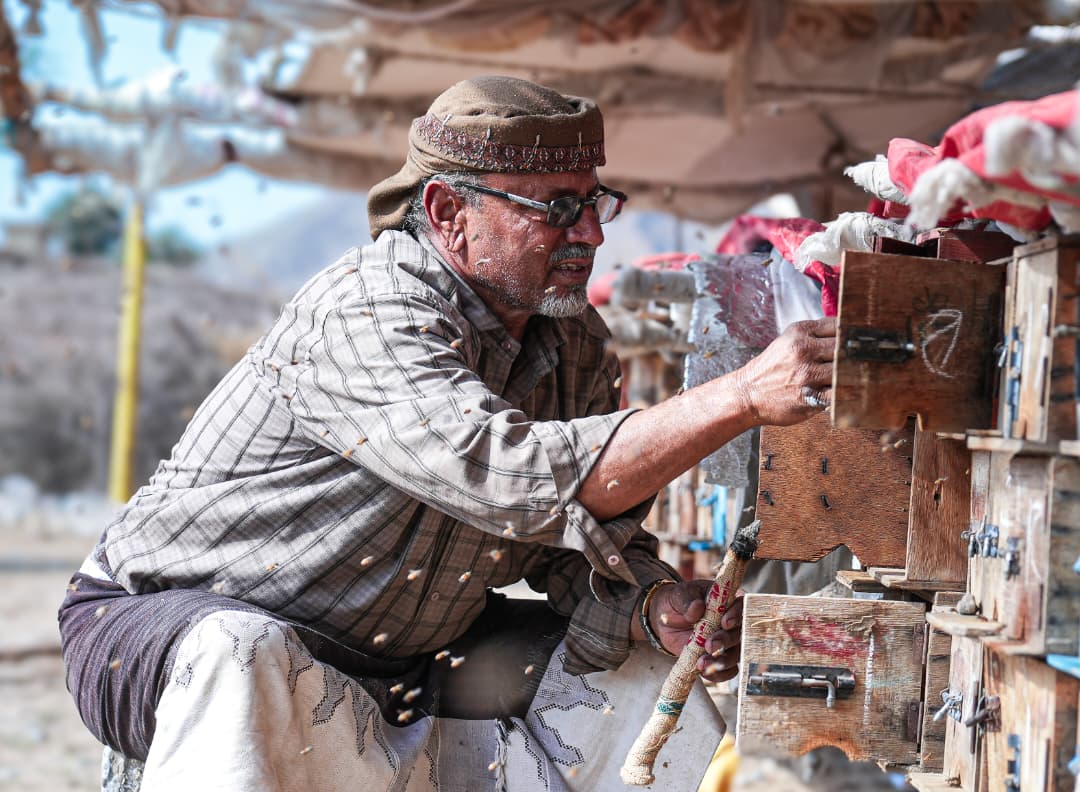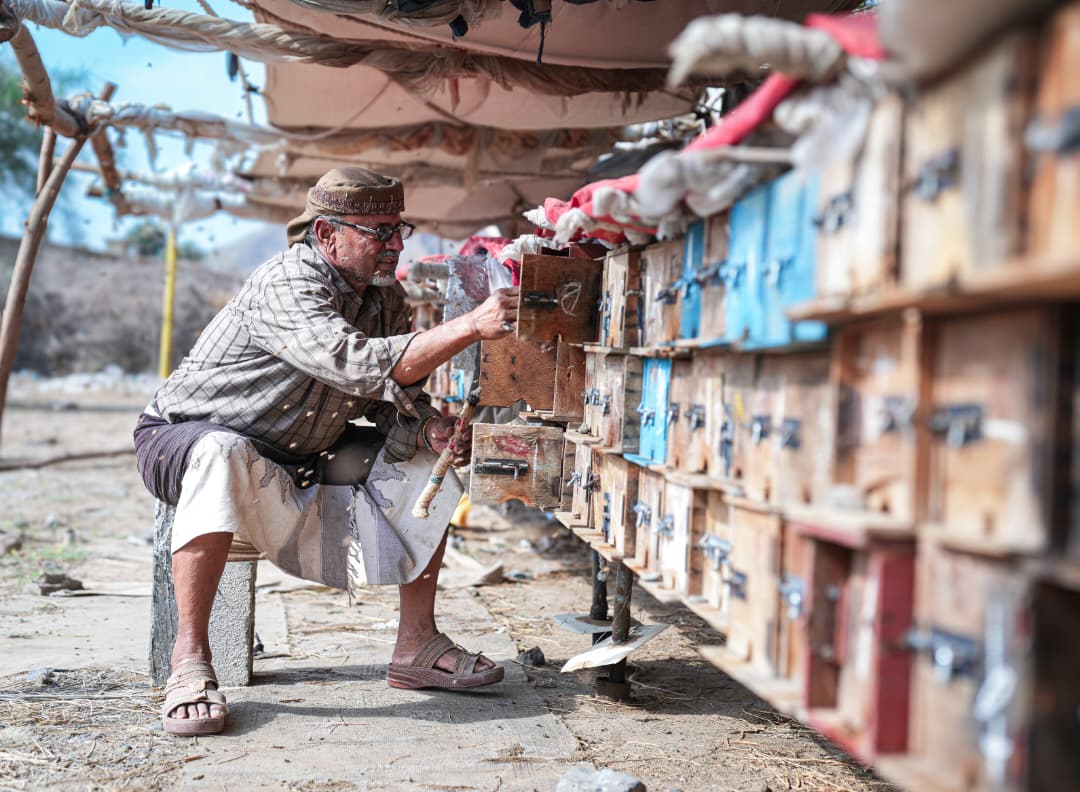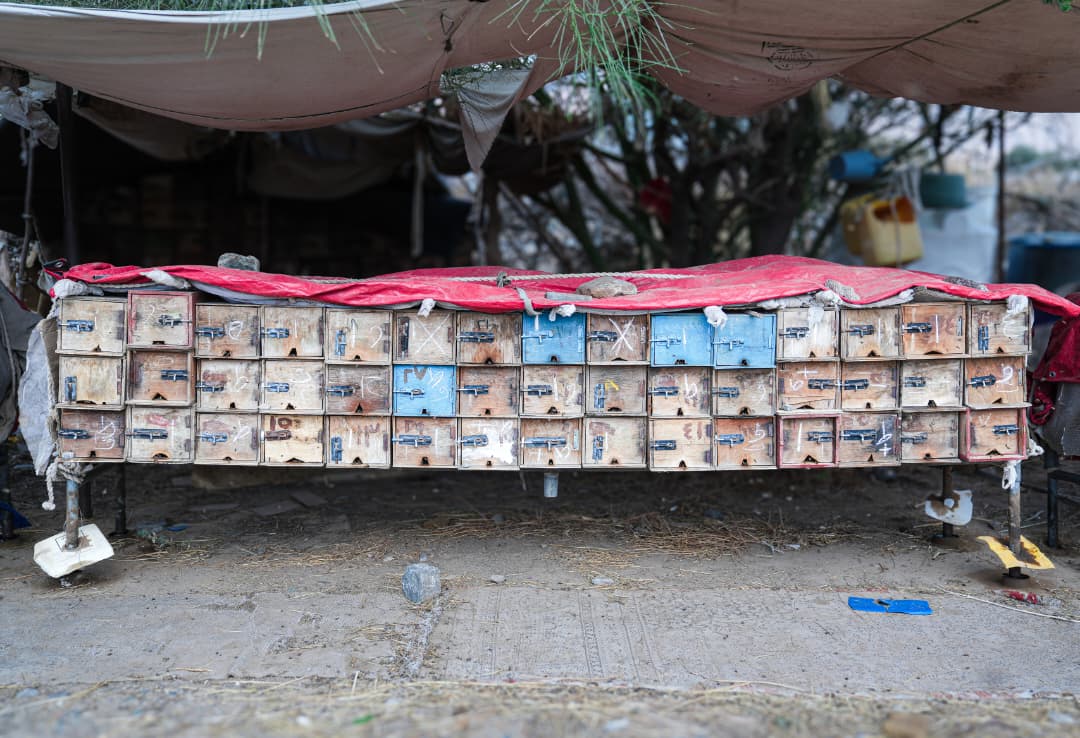The Shabwah Governorate has seen a notable revival of its honey trade over the past two years, following the successful clearance and securing of natural pastures by Project Masam.
A large governorate in south-central Yemen, stretching from the mountains of central Yemen down toward the Arabian Sea, Shabwah, has historically been a key economic and transport corridor linking Yemen’s highlands to its southern coast. During the conflict, Shabwah was a strategic front line between Houthi forces and pro-government troops, particularly in the districts of Usaylan, Bayhan, and Ain. Retreating Houthi forces planted thousands of landmines and improvised explosive devices (IEDs) in roads, villages, farms, and grazing lands to slow down advances and prevent the return of civilians.
Project Masam’s demining teams have cleared large areas in the districts of Usaylan, Bayhan, and Ain in Shabwah, as well as in Harib District in neighbouring Marib Governorate. These efforts have restored access to fertile pastures that had been off-limits for years due to landmine contamination, allowing beekeepers to safely resume their work and rebuild their livelihoods.
Beekeeper Ahmed Dhaifullah Al-Awadi, who has worked in the trade since 1995, said the cleared areas include some of the region’s most important Sidr tree pastures, known for producing some of Yemen’s finest honey.
“Thanks to Project Masam’s efforts, we have regained access to pastures that had been closed for years, allowing us to relocate our hives, increase production, and improve quality,” he said.
He explained that the spread of landmines had once severely restricted the movement of beekeepers, resulting in both human and financial losses. Many beekeepers were forced to abandon their hives, while others suffered injuries while attempting to move between contaminated pastures.
Al-Awadi added that Project Masam’s work has not only benefited local beekeepers but also hundreds from neighbouring governorates who rely on Shabwah’s diverse flora for honey production. The clearance of these pastures has helped revive one of Yemen’s most valuable traditional industries – a source of both income and cultural pride.
Clearing these areas has played a vital role in restoring Yemen’s beekeeping heritage, which dates back centuries and is renowned for producing Sidr honey, one of the most sought-after varieties in the world.
Al-Awadi called for continued clearance efforts to secure remaining pastures across the country so that beekeepers can work safely and continue contributing to local economies and Yemen’s broader recovery.

